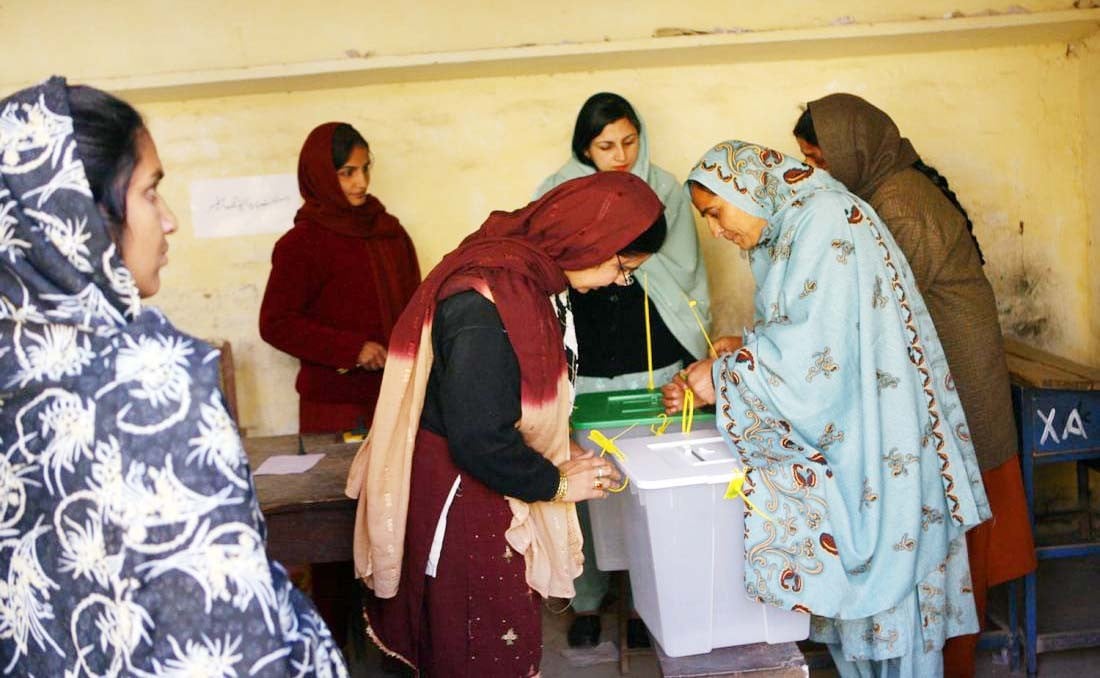
Women in tribal areas finally exercise their fundamental right to vote without a threat hanging over them

Despite all odds, a good percentage of women used their right to vote in the first-ever election for the Khyber Pakhtunkhwa Assembly in the newly-merged tribal districts, which was quite an encouraging development. The female participation in the July 20 electoral process in the erstwhile tribal areas, which are considered to be more conservative and traditional, was far better than many other districts of the province.
Around 20 to 30 percent of the total number of voters, women used their fundamental right to elect their representatives in the provincial assembly -- a right which they were denied for the past seven decades. Even more encouraging was to see two women contesting elections on general seats against men in an extremely patriarchal society.
Naheed Afridi tried her luck in the polls on PK 106, Khyber on the ticket of liberal Pakhtun nationalist Awami National Party, while Malasa Bibi contested the election from PK 109, Kurram from the platform of religious party Jamaat-e-Islami. Though they secured the least number of votes, they were not discouraged.
Naheed Bibi bagged only 194 votes out of the total 34,800 polled ballots among which 8,840 were women. Similarly, Malasa Bibi polled just 17 ballots at a constituency where the highest turnout of women voters had been reported. At total of 75,308 people cast their ballots in PK 109 of whom 33,536 were women, which is 44.5 percent of the voters. This shows that even women did not vote for female candidates.
The parties, which had fielded them, should be equally blamed for the lowest number of votes secured by their candidates. This is because the results show that even the workers from their respective parties did not vote for their female candidates, though both the parties had a considerable number of votes in the respective constituencies.
Both the candidates complained of the patriarchal nature of society and the use of money in elections. In a telephonic conversation with The News on Sunday, Naheed Afridi said that she believed that the people of the region, which is known for its traditional tribal culture, do not like women to lead them.
"It is not easy for women to join active politics and run an election campaign." But, it was her sheer commitment which enabled her to contest the election and she was feeling honoured for doing so forgetting about the number of votes she had polled.
Also read: Elections in the tribal districts
She was of the opinion that money and resources played a vital role in the elections. "You see the majority of candidates who made it to the provincial assembly are independents belonging to wealthy families. They made lavish use of money to win," she remarked.
She complained, "In some cases, the polling stations for women were established far away from their homes. It was difficult for them to travel for several kilometres to cast votes, especially in areas where conveyance was not easily available."
Another interesting aspect pointed out by Naheed Bibi was that many of the women who came to polling stations did not vote when they saw CCTV cameras installed there. "They didn’t want to be filmed and, therefore, left without casting their votes."
Malasa Bibi said that she was very excited when her party awarded the ticket. She praised her party workers for running an active election campaign though the process was very difficult.